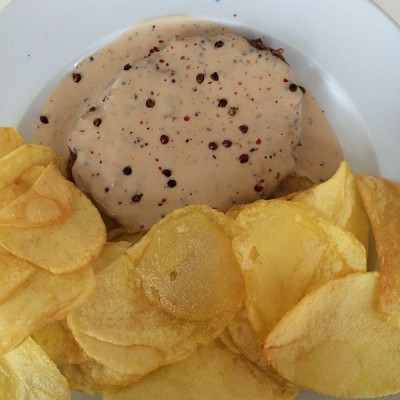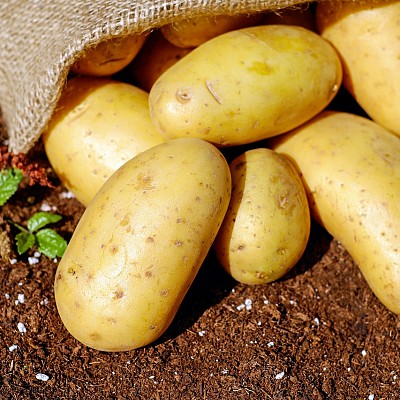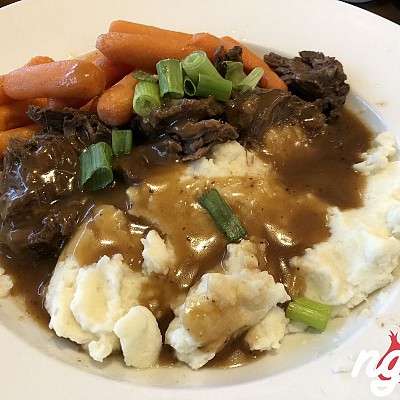Lebanese potato farmers find that less is more when it comes to agrochemicals Integrated crop management reduces use of agrochemicals while still improving yields
Fix it with chemicals. That was the old belief.
Traditionally, farmers in Lebanon depended on chemical fertilizers and pesticides to manage plant nutrition or plant pests and diseases. Most farmers believed that increasing the quantity of chemical fertilizers would increase the yields of their crops.
But now the rapidly deteriorating economic and financial crisis in Lebanon has made people rethink the situation. Most agricultural inputs (such agrochemicals, seeds, animal feed, vaccines and other veterinary supplies, etc.) are imported and, with the devaluation of the Lebanese currency, these are becoming out of reach for most farmers. They can no longer afford to rely on these increasingly expensive inputs.
With this situation of necessity and so many downsides of chemicals, farmers are now more convinced than ever in using fewer fertilizers and pesticides and finding better ways to manage their land, improve yields and preserve water.
One FAO project is helping farmers reduce their reliance on pesticides and fertilizers, while also addressing the agrochemical pollution of Lebanon’s Upper Litani river basin. The project promotes Integrated Crop Management (ICM), a technique that balances farming requirements with environmental responsibility.
Mostapha Kheireddine, a young potato farmer from Majdaloun-Baalbek in the eastern part of Lebanon, was farming with practices passed down in his family when he heard about this project from his neighbour. He attended a project field day during the late potato season in December 2020 and was then selected to join the project because of his interest in learning more about ICM.
The FAO project, implemented with the Ministry of Agriculture (MoA) and with funding from Norway, trained Mostapha and 41 other potato farmers in ICM practices.
This project established numerous potato pilot plots in Baalbek to compare the farmers’ traditional practices with ICM practices. In every plot, two fields were planted side by side, one by a project facilitator using validated ICM practices. Throughout the potato-growing season, the plot facilitator followed the crop development and made the necessary changes in the levels of irrigation, pest management and crop nutrition. The facilitator kept a record of all interventions made in both farmer and ICM plots, including quantities and types of pesticides and fertilizers used. At the end of the growing season, the yield of each field (farmer and ICM) was calculated and comparisons were drawn.
The results proved that it is feasible to reduce the use of chemical fertilizers by an average of 50 percent and pesticide sprays by at least 60 percent while maintaining the same or better productivity. Farmers could see the results directly in the field and were convinced.
Photo by Daniel Dan from Pexels






































